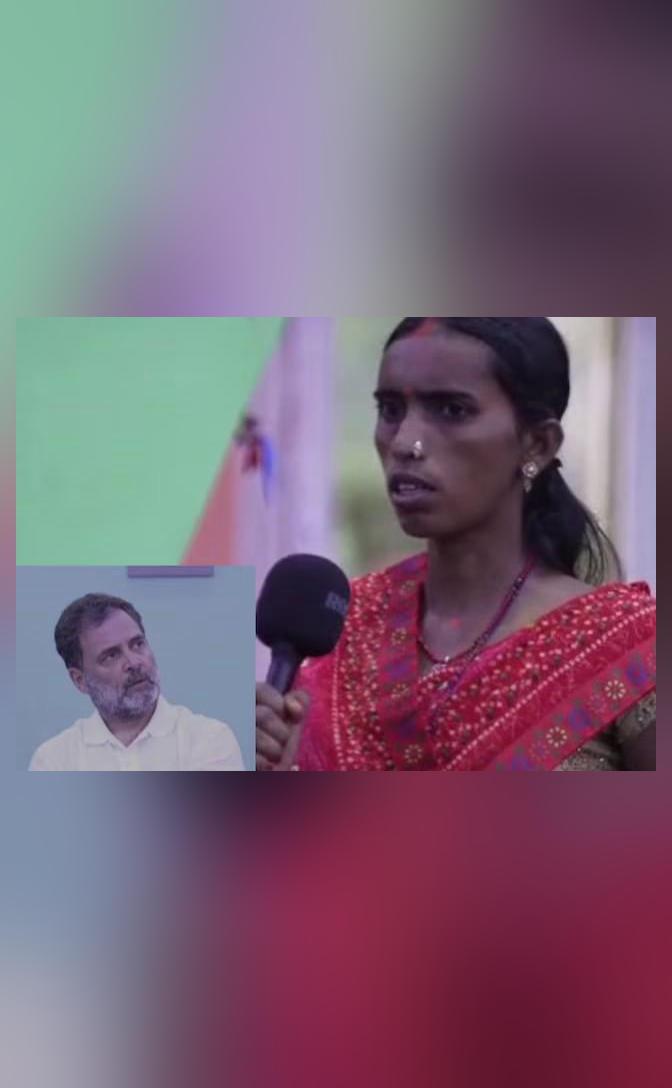
Was Told to Say It: Woman who Told Rahul her Family’s Names were ‘Cut’ from Voter List
In a shocking turn of events, a Bihar woman named Ranju Devi has denied her earlier claim that her and her family members’ names had been removed from the voter list. Ranju’s statement has raised questions about the authenticity of the claims made by the Congress party, which had released her video to accuse the government of “vote theft” in Bihar.
For those who may not be aware, Ranju Devi’s video was shared by Congress MP Rahul Gandhi on social media, along with a caption that read, “What is going on in Bihar? A woman’s family’s names have been cut from the voter list. This is a serious attack on democracy.” The video showed Ranju Devi narrating her ordeal, claiming that she had been told by the ward sachiv that her family’s names had been removed from the voter list.
The Congress party had hailed Ranju Devi as a victim of “vote theft” and had claimed that she was just one of many who had been affected by the alleged manipulation of the voter list. The party had also used her video to attack the Bihar government, accusing it of indulging in anti-democratic practices.
However, in a sudden turn of events, Ranju Devi has now denied her earlier claim. In an interview with a local newspaper, Ranju Devi said that she had been asked by the ward sachiv to speak to Rahul Gandhi and Tejashwi Yadav, the leader of the Rashtriya Janata Dal (RJD), about the issue. She claimed that she had never said that her family’s names had been removed from the voter list.
Ranju Devi’s denial has raised several questions about the authenticity of the claims made by the Congress party. If Ranju Devi herself has denied her earlier claim, then what was the motive behind the Congress party’s attempt to use her video to attack the Bihar government?
It is also worth noting that Ranju Devi’s video was shared by Rahul Gandhi without any verification or fact-checking. The Congress party had rushed to share the video without giving Ranju Devi a chance to clarify her statement. This raises questions about the party’s commitment to truth and transparency.
The controversy surrounding Ranju Devi’s video has also highlighted the need for greater scrutiny of political propaganda and the importance of fact-checking in the digital age. In today’s world, where social media has become a powerful tool for political mobilization, it is essential that we are cautious about the information we share and the sources we rely on.
In conclusion, the controversy surrounding Ranju Devi’s video is a classic example of how political propaganda can be used to create false narratives and manipulate public opinion. It is essential that we are vigilant and critical of the information we consume, and that we demand greater transparency and accountability from our political leaders.
Source:






